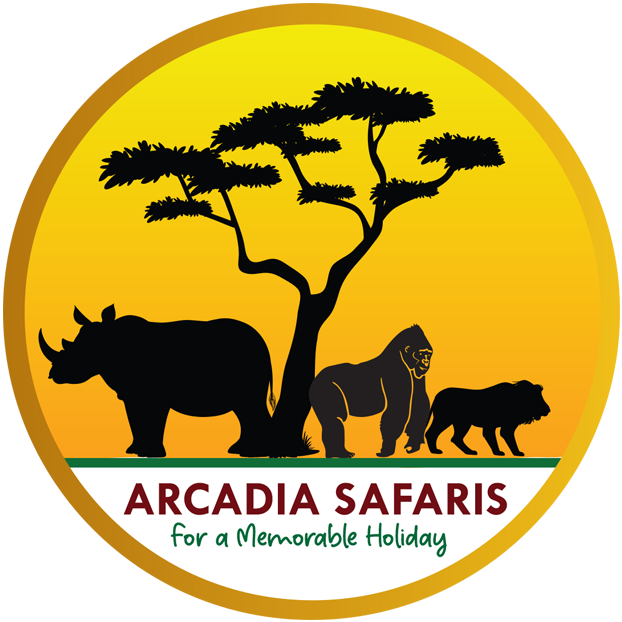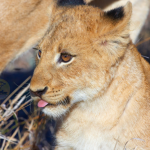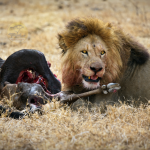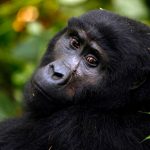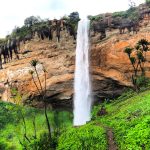Bunyoro-Kitara Kingdom: Heritage of a Warrior Empire
In the heart of Uganda’s mid-west lies the Bunyoro-Kitara Kingdom—a long-standing and influential kingdom whose heritage has reverberated for centuries. Its capital lies in Hoima, which is colloquially referred to as the “Oil City.” Bunyoro is a colossus pillar of Uganda’s cultural and historical heritage. The deep-rooted traditions, warrior dynasty, and tough leadership of the Kingdom still shape the essence of its people and fascinate those who seek to discover Uganda beyond the headlines.
A Glimpse into Bunyoro’s Storied Past
Bunyoro-Kitara, an ancient and powerful traditional kingdom in East Africa, traces its history to the legendary Empire of Kitara, which the Luo-speaking Babiito dynasty founded in the 14th century; It once reigned as a vast empire, spanning large territories of present-day Uganda, northern Tanzania, eastern Democratic Republic of Congo, and southern South Sudan. The empire wielded immense influence in trade, iron smelting, and local politics.
Admired warrior monarchs, known as the Abakama, punctuate the kingdom’s history, with Omukama Kabalega Chwa II standing out as perhaps the most legendary; He ascended to power in 1870 and fiercely resisted British colonial rule, employing guerrilla tactics for years until his capture and exile in 1899; His heroism solidified his status as a national hero, and songs, oral tradition, and national memory continue to invoke his name.
Although the monarchy faced suspension in 1966 alongside others across Uganda, the Constitution of 1995 restored it. Bunyoro now stands as a symbol of continuity and pride for its people, the Banyoro.
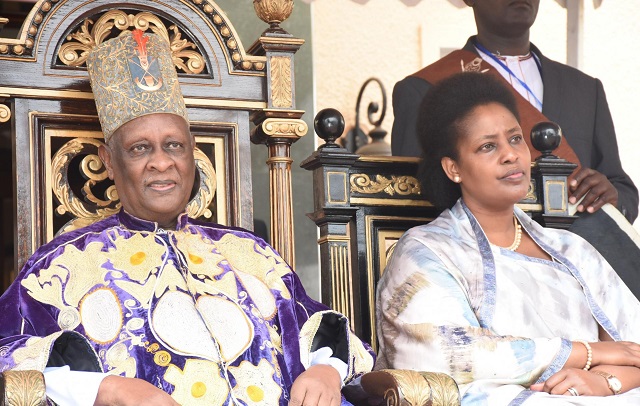
The Reign of Omukama Solomon Iguru I
With the present leadership of Omukama Solomon Gafabusa Iguru I, the Bunyoro-Kitara Kingdom continues to evolve as a keeper of tradition and a partner in regional development; Coronated to the throne in 1994, Omukama Iguru is greatly admired for his initiatives to preserve Bunyoro’s heritage and advance education, health, and economic empowerment among his subjects.
Under his rule, the Kingdom has once again reasserted its role in defining Banyoro identity and unity—particularly through cultural education, language revival, and development programs for women and youths.
The Omukama has no formal political role, yet he is granted a highly revered moral and cultural authority, and his presence is experienced across the region—particularly at traditional ceremonies, community gatherings, and development meetings.
Culture and Identity of the Banyoro
Bunyoro culture rests on principles of hospitality, respect for age, and close social relationships. Runyoro-Rutooro, its language shared with Tooro to its west, abounds with proverbial sayings and poetry that transmit life lessons from generation to generation.
Clans are very significant in the kingdom’s social setup, with every clan (omusika) having varied totems and functions in cultural ceremonies. Music, dance—in the form of the lively Ekitaguriro—storytelling remain a part of initiation rites and celebrations.
The kingdom also holds traditional names and titles of the monarch that carry profound significance. For instance, parents give children names that describe current circumstances (empako), such as “Atwooki” (peacemaker) or “Apuuli” (born during rain), preserving oral history through personal identity.
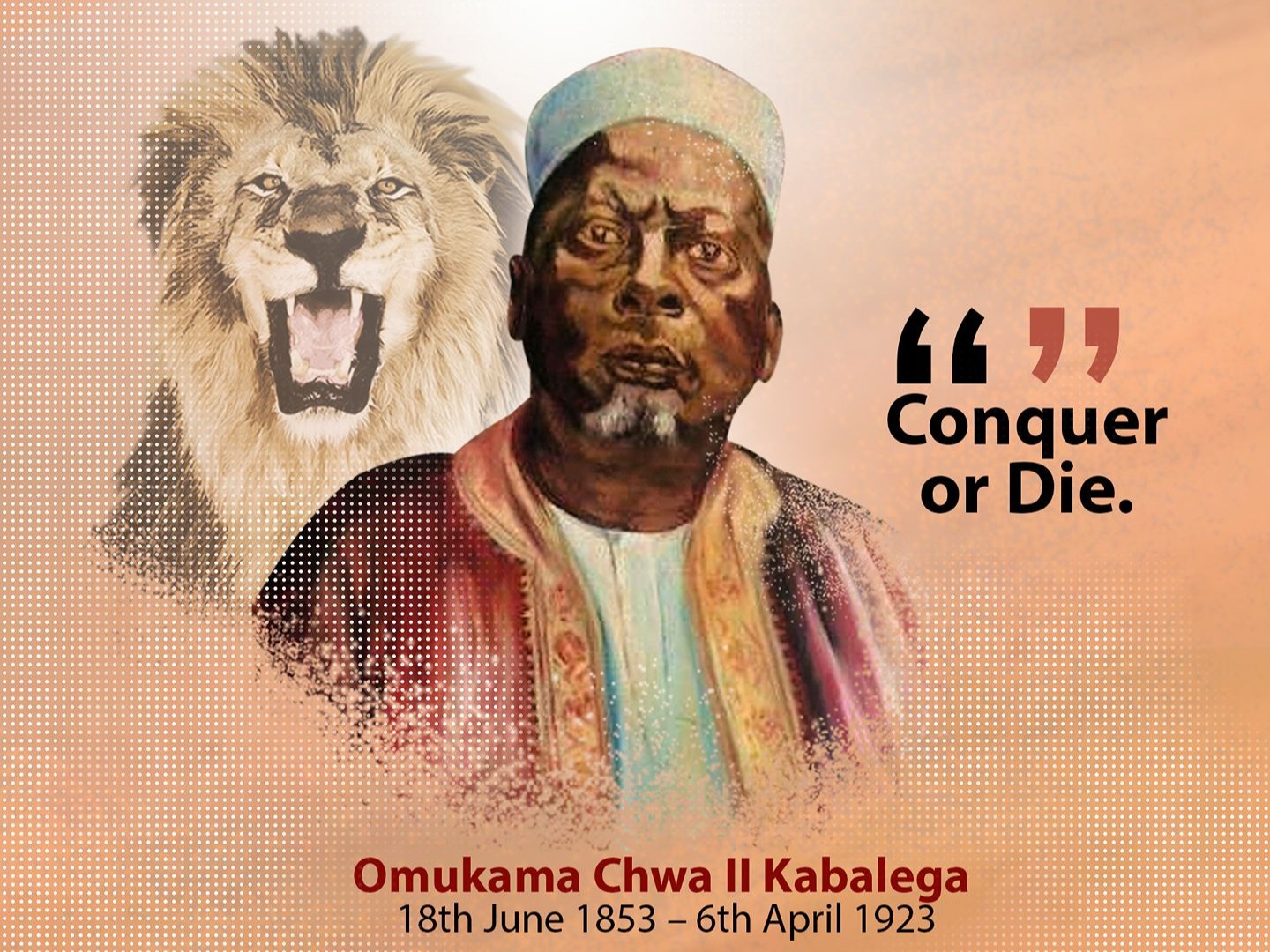
Symbols of Royal Power and Ceremonial Grandeur
The Bunyoro-Kitara Kingdom gains worldwide fame for its regalia and objects that remain sacrosanct over the years. These include royal drums, spears, calabashes, and crowns, each imbued with spiritual and historical meanings.
The Royal Regalia House at Karuzika Palace in Hoima centrally houses these symbols, securely storing them and displaying them during enthronement and other traditional ceremonies. They represent the unbroken dynasty of the Abakama and the spiritual bond connecting the kingdom’s rulers with their ancestors.
The Empango, the coronation anniversary of the Omukama, stands out as a notable event. In this vibrant annual ritual, the king reaffirms his pact with his people through ceremonies, feasting, and cultural performances.
Socio-Economic Role of the Kingdom
Although Bunyoro-Kitara functions as a cultural institution, it significantly contributes to the social and economic development of the region. The kingdom possesses abundant natural resources, including fertile lands, forests, and recently discovered commercial oil deposits in the Albertine Graben.
The Omukama and government actively advocate for land rights, environmental conservation, and community awareness of equitable oil benefit sharing. These efforts aim to ensure Bunyoro’s development remains inclusive and sustainable.
Moreover, Bunyoro embraces tourism with its cultural heritage monuments, such as the Royal Tombs, the Mparo ancient palace, and the proximity to Murchison Falls National Park, featuring dramatic waterfalls, diverse wildlife, and the winding Nile River.
The Kingdom implements health programs, cultural school systems, and small-enterprise growth for youth and women through partnerships with local governments and NGOs.
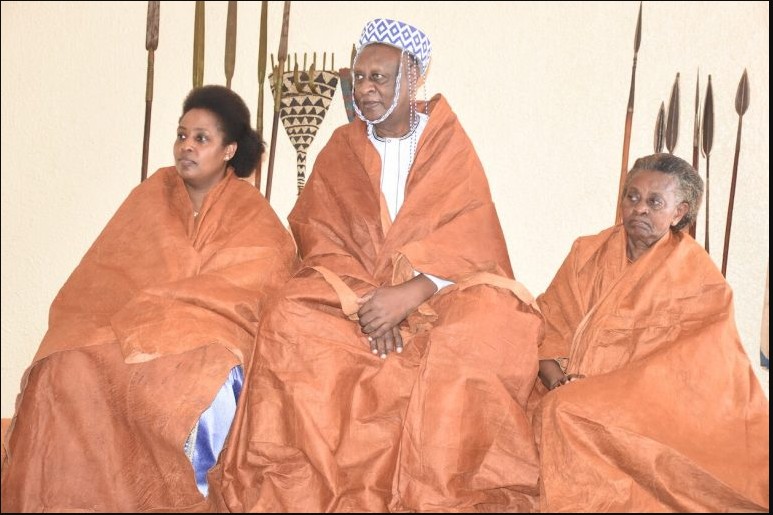
Cultural Events and Festivals
Bunyoro’s calendar features vibrant cultural ceremonies that connect the past and present. The Empango celebration, preeminent among them, includes traditional rituals, music, narration, and reaffirmation of allegiance to the Omukama.
Other community festivities include royal weddings, clan reunions, and Okuhingira (traditional giveaway ceremonies), where communities uphold marriage customs and family values with pride; These festivities draw tourists and researchers, offering a glimpse into the soul of a kingdom that has endured centuries of change.
Local crafts, herbal medicine customs, traditional cuisine like enyama y’omukaaga (beef stew) and amatooke (steamed plantains), and indigenous knowledge systems thrive with pride and openness.
Bunyoro in the Modern World
Bunyoro-Kitara Kingdom is still a cultural shining light in the midst of the fast-changing world. It emphasizes education, especially in the upkeep of the Runyoro language and history, and incorporates new ideas for societal progress without forgetting its past.
As oil and infrastructure development reconfigure the Hoima region, the kingdom finds itself with possibilities and challenges. Through calculated engagement and unflinching trust in heritage, however, Bunyoro is forging a place in the 21st century as a regional player and cultural institution.
Efforts by the royal family to lead the youth, protect the environment, and uphold gender equality demonstrate a kingdom concerned with its legacy and dedicated to shaping its fate.
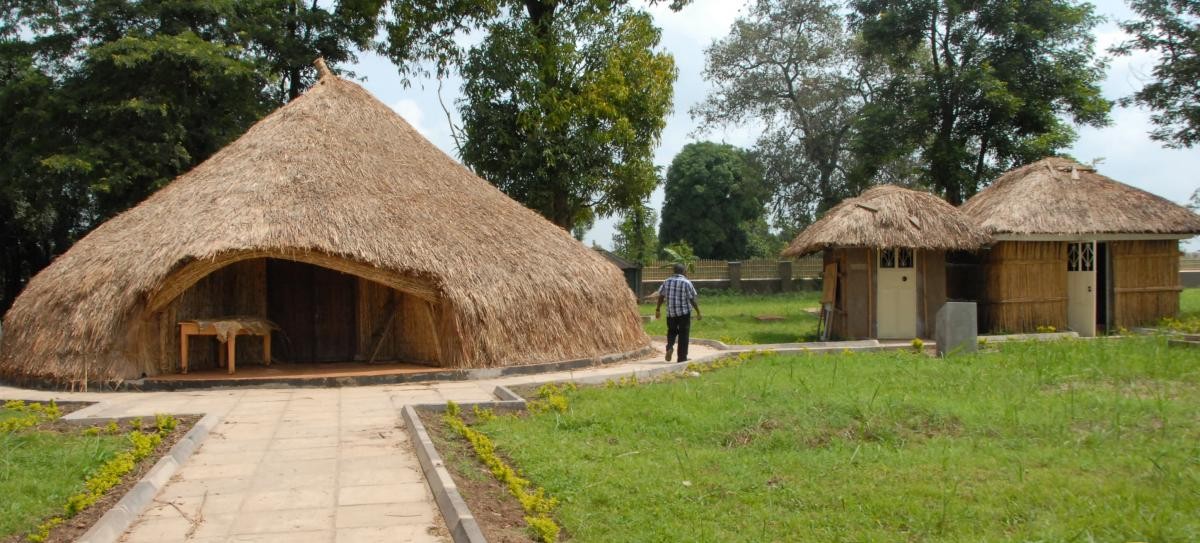
Explore the Soul of Bunyoro with Arcadia Safaris
To truly feel the essence of Uganda’s monarchal past, a visit to the Bunyoro-Kitara Kingdom is a must. Arcadia Safaris invites you to walk the imperial grounds of Mparo, view the ruins of Omukama Kabalega, and participate in the timeless rituals of one of Africa’s oldest and longest-reigning monarchies.
From exploring historical landmarks and cultural festivals to taking a wildlife safari in nearby Murchison Falls National Park, our guided tours make sure you don’t merely visit Bunyoro—you experience its past.
With local expertise, comfortable journeys, and deep-rooted cultural insight, Arcadia Safaris takes you to the very heart of Bunyoro—where every drumbeat, every story, and every smile whispers a history of fortitude, pride, and heritage.
Remarks on Bunyoro-Kitara Kingdom
Bunyoro is not just a kingdom—it is a tribute to the unconquerable Pearl of Africa. From Kabalega’s stormy bravado to the quiet prudence of today’s Omukama, from mystical ceremonies to riotous dances, the kingdom is a forceful reminder of Uganda’s monarchic heritage and an inspiration for the future; So when your journey leads you along western Uganda’s gentle hills, make time to locate Bunyoro. Let its history humble you, its customs motivate you, and its people make you welcome in the embrace of their proud realm. Live Bunyoro-Kitara—where empires whisper secrets and legacies last.

